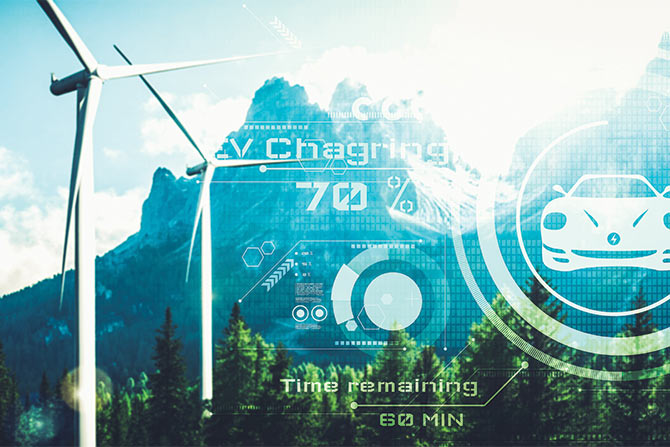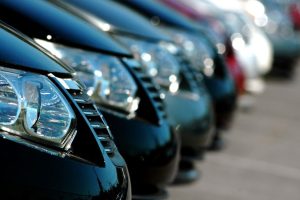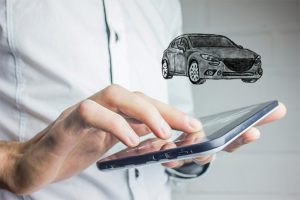On Jan. 5, 2022, The Washington Post published an op-ed article by Liam Denning entitled “Car Dealership Laws Aren’t Fit for the Electric Age.” On Jan. 13, 2022, NADA’s president and CEO, Mike Stanton, responded. The following sections contain a summary of the op-ed and Mike Stanton’s response.
An Admittedly Biased Summary of Liam Denning’s Article in The Washington Post
The op-ed begins with Liam Denning’s view of the auto dealership world. It isn’t pretty. He sees dealerships as no more than a revolving door for products. (Isn’t that what any good retail store tries to be?) The pandemic and supply chain issues emptied lots, then kept them empty. He saw the dealerships’ response to the pandemic as an opportunity to raise auto prices as volume fell. To support that claim, he said volume for 2020 was 7% less than for 2019, but that gross margin almost doubled, making their response to the pandemic nothing more than a chance to raise prices while volume fell. He then notes that dealers have a “growing challenge” as they move forward.
How accurate are his claims? They are misleading. Although he doesn’t talk about auto manufacturers or other industries, they too had unexpectedly profitable years after the pandemic shutdown. And although net profit was up for U.S. dealers, net profit included net operating profit and incentives paid by automakers to dealers who exceed sales targets. Also, chip shortages meant manufacturers focused on building SUVs and trucks because they have higher margins than small cars. Higher net profit is to be expected for everyone under those circumstances.
The article then moves to an admiring analysis of EV manufacturers, with Rivian Automotive Inc. and Tesla Inc. mentioned by name. He says nothing about how direct sales affect EV profits, but he does say EV manufacturers are highly valued at the moment. He then talks about how the current system came to be. State laws passed decades ago were designed to prevent predatory behavior by big U.S. automakers and force them to use independent franchises for
vehicle sales and service. After the history lesson, he claims that the current market is different from the 1950s market.
Why?
He says three U.S. brands no longer dominate the market. The current market, he claims, is too competitive to allow a repeat of the same issues that caused legislation to be written in the first place. Really? Tesla dwarfs all other EV manufacturers. And although Elon Musk has plans to fill the global market with Teslas, Denning ignores Musk’s gigafactories in Berlin, Shanghai and Texas.
Even though Denning names Rivian and Tesla as two important companies in the developing EV market, citing sky-high valuations, he is wrong there, too. The three largest EV manufacturers are Tesla, VW and General Motors … not Rivian. Rivian is riding on expectations, not accomplishments. But since newcomer Tesla is the EV manufacturer currently
dominating the EV market, why would anyone conclude states should throw away hard-earned legislative protections? Remember, too, that Musk – who is admittedly brilliant – will never remind anyone of the late Fred Rogers.
Next, Denning says that high dealership margins come from selling vehicles and then taking care of them. He implies that EV sales departments meet several times with buyers while educating them about their potential purchases and that franchise dealers are all about the hard sell. Since EVs have fewer parts, though, he suggests service departments will be much less profitable in the future.
It’s hard to know what to address first. Selling is selling, and doing it right means building a customer relationship. That’s why the best dealers have always made a point of helping their communities prosper. There are even many dealerships where the customers and employees are multigenerational. Dealerships like that do not fit a “hi, bye” model, especially in
small communities. Dealerships have to care about customers, or they don’t last. And “less service” is not the same as “no service.” Tesla, in particular, has skimped so far on building up the service side of the business. As sales volumes increase, that’s going to be a problem.
Denning then turns his attention to Michigan, Florida and New York. Yes, the market is changing, which means the way autos are built and sold will also change. Yes, dealerships have invested a great deal of time and energy working with legislators. Yes, Rivian and Tesla valuations are high and are affecting the market.
None of that somehow makes dealers dishonest or irrelevant.
That’s our summary of Liam Denning’s article. Read on for Mike Stanton’s excellent response, with which we fully agree.
How NADA’s Mike Stanton Responded
Dear Editor:
Liam Denning’s piece on car dealerships (Car Dealership Laws Aren’t Fit for the Electric Age, Jan. 5) uses decades-old tropes to make the case for direct sales as the best path to EV adoption. But he misses the mark by failing to grasp what is actually involved when average Americans buy or lease a new vehicle.
The truth is, America’s 16,500 dealerships and million plus highly skilled product specialists and technicians are essential to achieving the government’s goals for broad EV adoption. Here’s why:
The next stage of EV adoption won’t mean getting affluent buyers into $100k+ luxury or performance vehicles. It will mean getting average consumers into mass-market vehicles they depend on every day to get to work and manage family life. It will mean helping those customers figure out how to finance their vehicles and how to handle their trade-ins. It will mean educating
them about the differences EVs present. And it will mean keeping these vehicles on the road when inevitable repairs and recalls happen – without long wait times.
Today’s EVs are great vehicles – but they’re not perfect. It’s possible that EVs may need less service in the future, but in 2021 the data shows they require more service and repairs than ICE vehicles. Tesla’s recent recall of some half million vehicles and GM’s recent recall of some 100,000 Bolts suggest that EVs are not immune to safety issues that must be fixed.
Because local dealerships compete for customers on sales and service, the result is that pricing is competitive, and service is plentiful – from multiple same-brand dealers. It means you can always get a dealer on the phone, and you can always get a local appointment, with no waiting or frustrating 1-800 calls. With new complex new products like electric vehicles, personal service and education is needed more than ever.
EV buyers agree. In the largest and most comprehensive survey ever conducted of future EV buyers in the U.S., the analytics firm Escalent presented future EV buyers with a factory sales model and a franchise dealership model. Only 20% preferred the direct approach. Twenty-three percent were neutral. And a full 57% chose the current dealership model.
When 20,000 future EV buyers demand for dealerships be a big part of their EV purchase experience, it is clear that the franchise dealership model works just as well for EVs as it does for traditional vehicles.
America’s car and truck dealers are all-in on EVs and raring to get going in promoting them. Our best environmental policy is to leverage the network of America’s 16,500 dealerships to help America successfully make the transition to EVs.
Sincerely,
Mike Stanton
President and CEO
National Automobile Dealers Association










